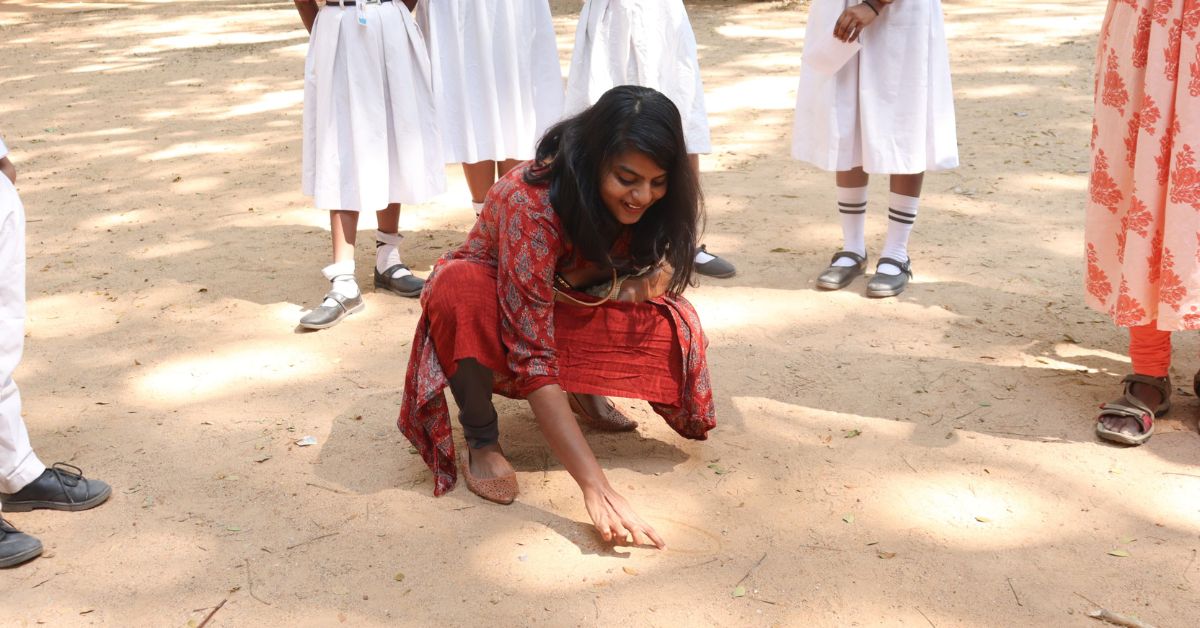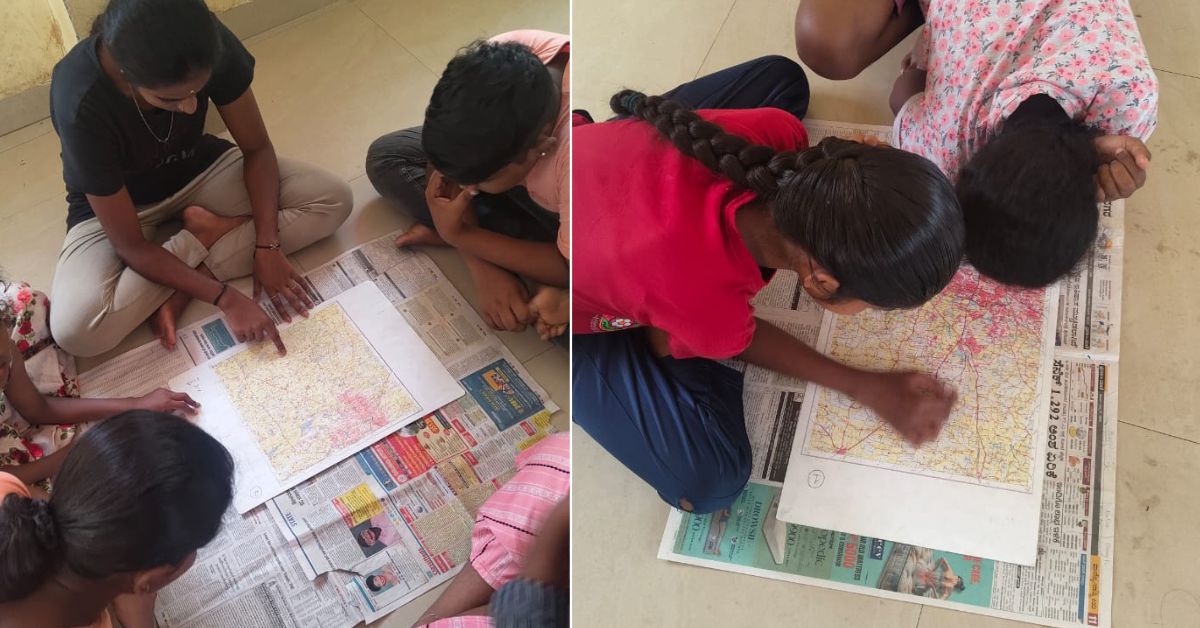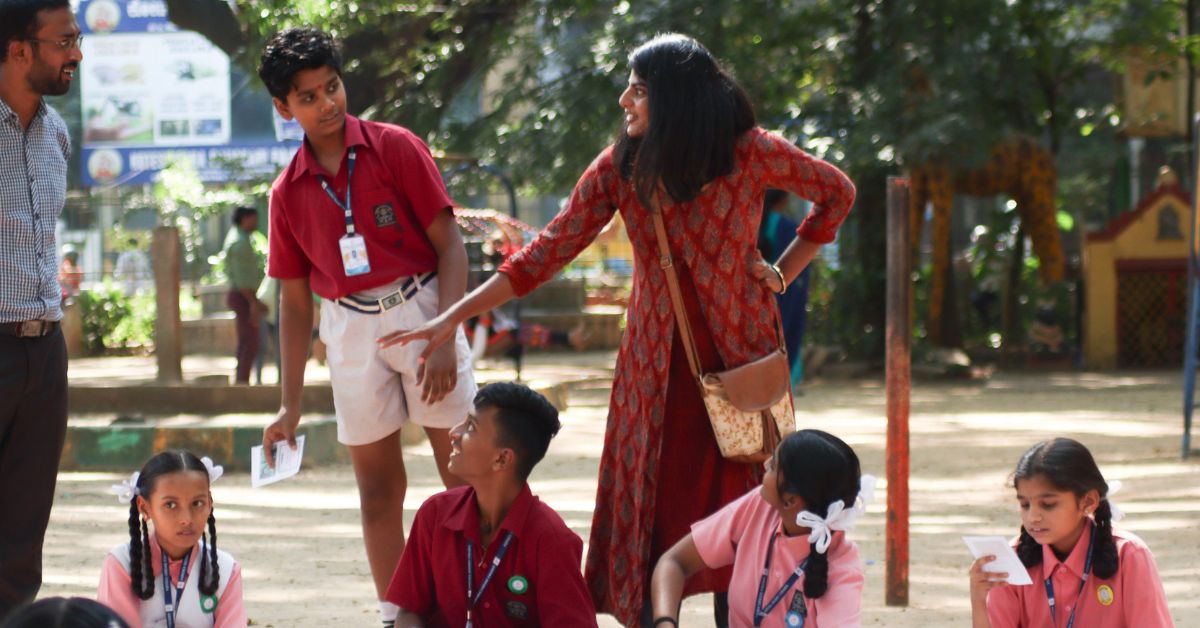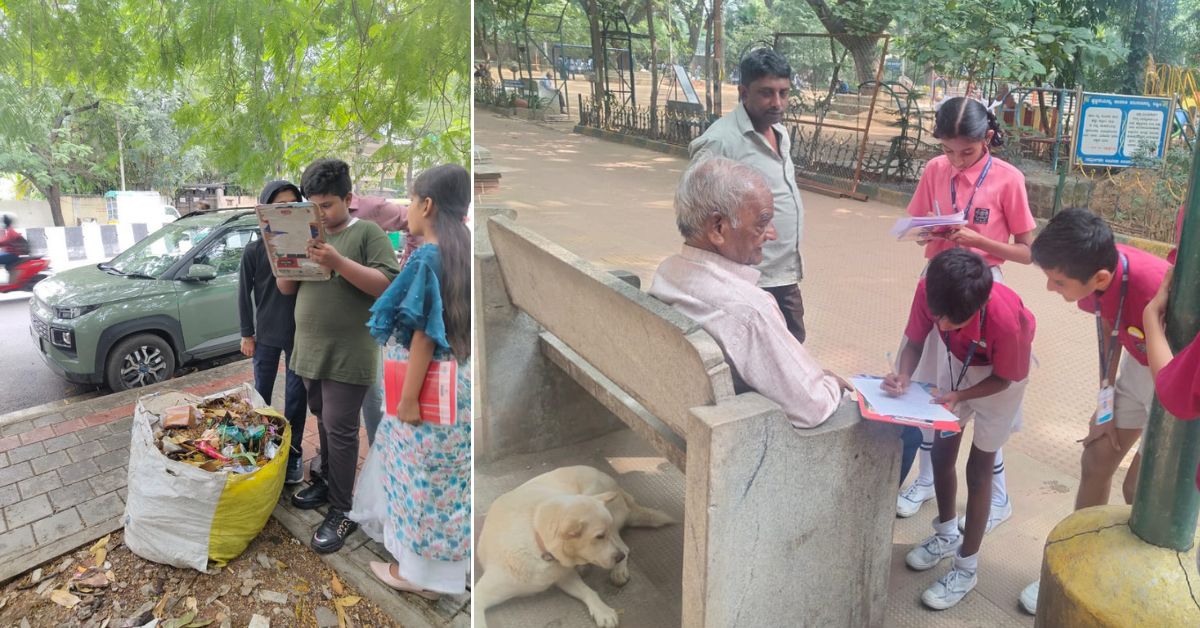Saidevi Sanjeeviraja grew up with nature as her fixed companion within the Jap Ghats in Tamil Nadu. Rising up close to the Grizzled Squirrel Wildlife Sanctuary, she was surrounded by peacocks and an endangered species of squirrel. Weekends typically concerned chook watching each on and off college grounds. This setting supplied her ample unstructured time in nature.
“Since my mom labored because the principal of my college, I had the liberty throughout summer time holidays to roam round 20 acres of land, typically in solitude. Such an atmosphere nurtured my curiosity — I spent hours observing ant lions developing tiny entice holes or watched tailor birds adeptly weaving cobwebs between leaves to create their properties,” she remembers in a dialog with The Higher India.
She would typically discover herself drawn again into the lap of nature even after her educational journey in finance and worldwide enterprise.
Reflecting again on these youth, she realised that shifting to Bengaluru as an grownup had created an enormous hole in how kids interacted with nature.
“Whereas town boasts a wealth of inexperienced areas, with parks and lakes inside a few kilometres from almost each dwelling, there’s a noticeable hole in how kids can work together with nature,” she says.
“In contrast to the unstructured freedom I loved, kids in Bengaluru expertise extra regimented interactions with nature, restricted to temporary, managed visits to parks. They’re typically directed by adults and sure by many restrictions, like not being allowed to run or sit in sure areas,” she provides.

In contrast to her personal childhood, the place hours might be spent observing the intricate behaviour of ants or the architectural skills of tailor birds, the city kids had little or no unstructured playtime in pure environments.
Realising that structured and restricted park visits have been inflicting kids to overlook out on the identical experiences that had formed her, Saidevi determined to create’ Thicket Tales’. This organisation goals to bridge the hole between kids and nature in cities by making studying an attention-grabbing journey.
“I needed to create a pure immersive expertise for kids the place they may discover like how I explored, in order that they’re impartial amidst nature,” she provides.
Bringing nature into schooling
With Thicket Tales, Saidevi introduces center college college students, significantly these from low-income households, to the wonders of nature by means of hands-on experiences like nature walks, storytelling, and environmental initiatives.
She has been reworking the way in which science and social science are taught by integrating them with nature.

The organisation operates throughout roughly 100 faculties and parks in Bengaluru, offering an 80-minute weekly session that permits kids to be taught by interacting with the atmosphere. Every session goals to foster curiosity and encourage kids to find and be taught by means of self-directed exploration.
Initially met with skepticism, Saidevi’s method has progressively gained acceptance as its influence has turn out to be evident by means of movies and tangible outcomes.
The organisation consists of a gifted crew, together with a skilled biologist, a science communicator, and an instructional director – all working collectively to make ecological schooling accessible and immersive.
The facility of Thicket Tales lies in its simplicity and influence. As kids discover the parks round Bengaluru, they have interaction in actions that problem their cognitive and sensory expertise.
“These walks are stuffed with alternatives for spontaneous studying — kids may determine a chook species by their calls or perceive pollination by watching bees at work. This hands-on method goes past bookish information. It deeply instills an appreciation for and understanding of nature,” she shares.
“For youngsters in low-income settings, these experiences turn out to be much more profound. Usually missing entry to extracurricular actions, these nature walks provide them a brand new world to discover and revel in,” she provides.
Saidevi notes how by means of actions like scavenger hunts or storytelling beneath bushes, the kids develop important pondering expertise and achieve empathy in direction of all residing creatures.

One specific occasion stands out in illustrating the transformative potential of Saidevi’s packages. A gaggle of scholars labored on figuring out completely different species of butterflies over a sequence of classes. They got cameras to doc their findings and shared their observations with enthusiasm.
“One pupil, who initially confirmed little curiosity, grew fascinated by a typical Mormon butterfly he captured. His newfound curiosity propelled him to be taught extra about butterflies, main him to current his findings to his friends and fogeys with confidence,” she provides.
One other story is of how, throughout a dialogue on local weather change, a pupil realised the significance of town’s inexperienced cowl. Utilizing maps from 1973 and 2011, college students have been ready to attract poignant connections between dwindling inexperienced areas and rising city temperatures.
“This train not solely bolstered their geographic expertise but in addition instilled a way of duty to advocate for greener practices of their group,” she shares proudly.
Constructing a way forward for eco-conscious residents
By these immersive programmes, kids are usually not simply passive learners however energetic members and changemakers. They’re taught to determine environmental points inside their communities and inspired to plot options. Whether or not it’s a litter drawback in a park or lack of inexperienced areas, these younger minds are empowered to assume critically and compassionately.
Sonia, a category 8 pupil at Ashoka Shishu Vihara college of Bengaluru, shares with enthusiasm the essence of her studying journey. “I like these nature lessons,” she started, her phrases imbued with heat.

“Probably the most stunning a part of this journey is experiencing all of it with my associates. My college gave me the fantastic alternative to find out about nature, what results in local weather change, and the animals that inhabit our world,” she provides.
She paused, reflecting on the information she cherished. “I’ve even discovered about several types of snakes, vegetation, and animals. It’s fascinating to find all these items along with associates.”
With a twinkle in her eye, she continues, “Saidevi aka (sister) doesn’t simply educate us from books. She exhibits us real-life examples, like footage on TV and samples of leaves and flowers. It’s wonderful! After we go to parks, she explains the whole lot we see, and now I may even determine a number of the bushes and birds round my dwelling and within the parks.”
Sonia’s ardour was evident, her phrases portray an image of a nurturing and galvanizing instructional expertise that had actually ignited her love for the pure world.
Saidevi’s imaginative and prescient is to domesticate a era that isn’t solely knowledgeable in regards to the atmosphere but in addition concerned in its preservation. Thicket Tales is greater than only a nature stroll — it’s a motion in direction of rethinking how schooling can incorporate real-world points, fostering a era that deeply respects their pure world.
“Recognising the success of those packages, native authorities our bodies like BBMP (Bruhat Bengaluru Mahanagara Palike) have proven curiosity in incorporating our strategies into their college curriculums. There’s hope that such initiatives will develop, create ripples of change throughout extra faculties,” she provides.
By rekindling a baby’s innate curiosity and love for nature, she isn’t solely enriching lives but in addition cultivating a extra conscientious and sustainable future for Bengaluru and past. By nature, these kids be taught the interconnectedness of life – a lesson that lasts a lifetime.
Edited by Vidya Gowri; All photos courtesy: Thicket Tales.

